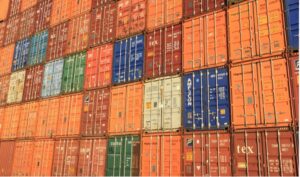If you’re involved in the world of logistics, you may have come across the term “FOB shipping.” But what does it actually mean? In this guide, we’ll break down the definition of FOB shipping and how it works in the transportation of goods.
What is FOB shipping?

FOB shipping, or Free On Board shipping, is a term used in the transportation of goods. It refers to a shipping agreement where the seller is responsible for the goods until they are loaded onto a shipping vessel. Once the goods are loaded, the responsibility and risk of the goods are transferred to the buyer. FOB shipping is commonly used in international trade and can have different variations depending on the specific agreement between the buyer and seller.
shipping fob meaning
Understanding the different types of FOB shipping.

While FOB shipping generally refers to the seller’s responsibility for the goods until they are loaded onto a shipping vessel, there are different variations of this agreement. For example, FOB origin means that the buyer takes responsibility for the goods as soon as they leave the seller’s warehouse, while FOB destination means that the seller is responsible for the goods until they reach the buyer’s destination. It’s important to understand the specific terms of the FOB agreement in order to avoid any confusion or disputes during the shipping process.
The benefits and drawbacks of FOB shipping.

FOB shipping can offer several benefits, such as lower shipping costs for the buyer and more control over the shipping process for the seller. However, there are also potential drawbacks to consider, such as the risk of damage or loss during transit and the need for clear communication and understanding of the FOB terms between both parties. It’s important to weigh the pros and cons of FOB shipping before deciding if it’s the right choice for your business.
How FOB shipping affects pricing and responsibility.

FOB shipping affects both pricing and responsibility in the shipping process. The FOB terms determine who is responsible for the goods during transit and who pays for the shipping costs. For example, in FOB origin, the buyer is responsible for the goods once they leave the seller’s facility and pays for the shipping costs. In FOB destination, the seller is responsible for the goods until they reach the buyer’s facility and pays for the shipping costs. Understanding the FOB terms is crucial for both buyers and sellers to avoid any misunderstandings or disputes.
Tips for successful FOB shipping.

To ensure successful FOB shipping, it’s important to communicate clearly with your supplier or buyer about the FOB terms and responsibilities. Make sure to agree on the specific FOB point, whether it’s origin or destination, and who will be responsible for the goods during transit. It’s also important to choose a reliable carrier and to properly package and label the goods to avoid any damage or loss during transit. Finally, make sure to have a written agreement or contract that outlines the FOB terms and responsibilities to avoid any disputes or misunderstandings.
shipping fob meaning





